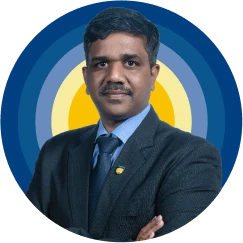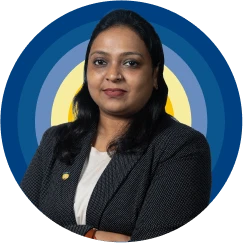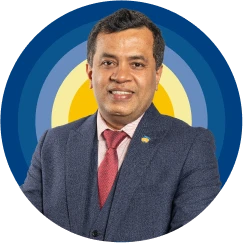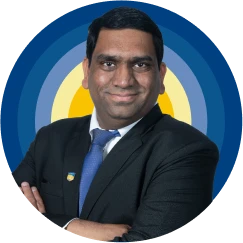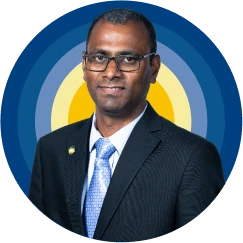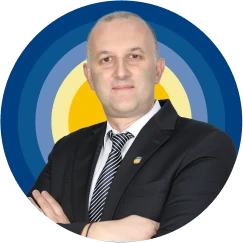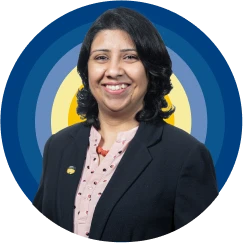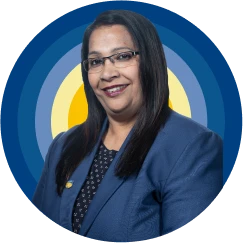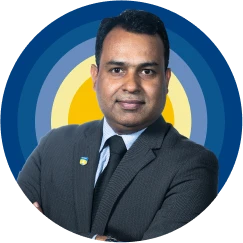CEE425 Analysis and Design of Pre-stressed Concrete Structures
This course majorly deals with prestressed concrete and prestressing concepts that includes pre-tensioning and post-tensioning, full and partial prestress, the need for prestress as well as advantages and disadvantages and methods of prestressing including forces imposed by prestressing (straight, draped and kinked tendon profiles). It also covers special problems in prestressing which includes losses, effect of creep, shrinkage, and end block design-bursting and spalling forces in post anchorages and transmission lengths in pre-tensioned members. The course aims in making students able to design statically indeterminate beams as well as continuous prestressed concrete beams.
LAW132 Law for Engineers
The aim of the course is provide general exposure to the students about the elementary knowledge of law that would be of use in their profession. It also enable students to appreciate the importance of law and its impact on business and society. Key topics includes Law making, Principles of contract, Adjudicatory System, Intellectual Property, Governance and Transparency etc.
HIST138 Aspects of Indian History for Engineers
This course is designed to provide adequate understanding of history and scientific achievements of Ancient India. It deals with identification of major dynasties and examine social, economic and cultural conditions of ancient India. Student are exposed to analyze the scientific achievements, recognize the ancient heritage and examine the past versus present scenario.
ECON132 Economics for Engineers
The objective of this course is to familiarize the prospective engineers with elementary principles of economics. It also deals with acquainting the students with standard concepts and tools that they are likely to find useful in their profession when employed in the firm/industry/corporation in public or private sector. It also seeks to create an awareness about the status of the current economic parameters /indicators/ policy debates.
SOC104 Sociology for Engineers
The objective of this course is to familiarize the prospective engineers with elements of Indian history, sociological concepts and theories by which they could understand contemporary issues. This course also aims to make students understand the problems in Indian society. Critical analysis regarding social processes of globalization, modernization and social change are also dealt.
CEE423 Design of Earthquake Resistant Structure
This course aims in introducing the basic concepts in dynamic as well as probabilistic modeling of earthquake loading and dynamic analyses/simulation with uncertainty in earthquake engineering. It also emphasizes on the basics of structural dynamic analyses highlighting on earthquake engineering applications. This course also helps in analyzing the influence of the structural / geometrical design in building characteristics as well as demonstrating the cyclic loading behaviour of RC steel and pre-stressed concrete elements.
CEE424 Foundation Engineering
This course deals with design and construction aspects of foundations for various Civil Engineering structures in practice. Students also learn about subsurface exploration, selection of foundation type as well as analysis and geotechnical design of shallow foundations and pile foundations. In addition, students study about foundations on problematic soils and are introduced to geo-synthetics and retaining walls.
CEE429 Natural Disaster Mitigation and Management
The course is intended to provide a general concept in the dimensions of disasters caused by nature that are beyond the human control as well as the disasters and environmental hazards induced by human activities with emphasis on disaster preparedness, response and recovery. This course majorly deals with topics like various types of disasters, disaster risk reduction in emergencies and methods for managing infrastructure. It also covers prevention and risk management of disasters, disaster response methods as well as post-disaster recovery planning.
CEE426 Green Concepts in Buildings
This course deals with the concept of understanding and developing green structure that are environmentally friendly in nature. Major emphasis of the course will be in environmental implications for structures, alternative building technologies as well as thermal comfort and heat characteristics for buildings. It also deals with concepts related to green composites and utilization of solar energy.
CEE427 Renewable Energy Resources & Systems
The course presents the various sources of renewable energy including wind, solar, and biomass as potential sources of energy. It also deals with their contribution that they can make to the energy profile of the nation as well as technology used to harness these resources. Various discussions related economic, environment, politics and social policy are integral parts of the course.
GST401 Geographic Data Analysis and Application
This course introduces students to the elements and capabilities of a Geographic Information System (GIS) for solving spatial problems and its application in various fields. It also deals with application of Geographic Information System knowledge in engineering related problems. Emphasis is given to use the techniques, skill, and modern engineering tools for solving engineering problems.
CEE411 Traffic Engineering and Management
The course aims at providing comprehensive knowledge of traffic surveys and studies such as ‘Volume Count’, ‘Speed and delay’, ‘Origin and destination’, ‘Parking’, ‘Pedestrian’ and ‘Accident’ surveys. It also deals with achieving knowledge on design of ‘at grade’ and ‘grade separated’ intersections. This course also emphasizes various traffic control, traffic management measures, accident dynamics and techniques to ease out traffic congestions.
CEE412 Water Resources Systems Planning & Design
This course deals various aspects like hydrologic input analysis, demand analysis, system elements & subsystem planning. The course also emphasizes on stochastic planning and management as well as optimization methods and their application in water resource systems. The course targets to impart knowledge of ability to carry out groundwater system planning.
GST605 Geographic Information System
This course provides an introduction to the fundamental theories and concepts of Geographic Information Systems (GIS). The course content will include data input, storage and editing, spatial data structures, analytical functions of a GIS, data output, management of GIS, and applications of GIS. The course concentrates on basic understanding of the nature of spatial data, how spatial data is input and analyzed in the GIS environment.
CEE415 Systems Approach to Civil Engineering
This course is designed to understand and formulate different types of civil engineering systems and learning various optimization techniques. The course will give the idea to differentiate various systems and models can be formed to solve civil engineering problems and to appreciate the formulation and solution of several types of optimization methods.
CEE414 Energy Assessment of Buildings
This course deals with sustainable development for buildings by examining physiology required for human function (comfort, ergonomics, and respiratory requirements, as well as sensory perception) and then by considering how building components and systems affect human performance and well-being. This course also emphasizes on energy consumption in various sectors and its changing pattern globally as well as energy issues and policies. It helps students to understand the linkage between energy, environment and sustainable development, green building concept and sustainable development
MAE403 Computer Aided Design
The objective of this course is to impart students an in-depth exposure to methods in geometric modeling and its applications in CAD/CAM. This course introduces integrated approach to CAD including: overview of CAD, numerical techniques for CAD, computer graphics and design, principle and management of design data base system, finite element analysis and CAD and design optimization. Along with the theoretical presentations, the course also demonstrate a broad understanding of computer aided drafting and its applications.
CEE431 Digital Construction Technology
This course deals with digital construction and futuristic technology, by using the technologies that can reduce the construction cost and time with better quality and safety. This course teaches various concepts related to building information modelling, 3D printing, drones usage in construction, augmented reality, virtual reality, modular construction and IoT in the construction field. Students will get fair idea about digital construction.
MAE404 Finite Element Methods
The objective of this course is to learn how to design and analyze structural components of machine system, especially using the finite element method. The course exposes students to analytical and numerical methods for computing stresses and strains in structures, use of finite element software for static structural analysis and the application of design and failure criteria to ensure that mechanical components can carry the design load without failure.
ESCM402 Environmental Pollution Control Engineering
The objective of this course is to impart knowledge about advanced concepts of environmental pollution and various engineering solutions for controlling the pollutions. The course give insights into various types of pollution like air pollution, water pollution, land pollution, noise pollution, light and glare pollution etc. In addition, the course deals with various ways of measuring pollution and their control strategies.
CEE422 Design Remodeling and Repairing of Plumbing System
This course deals with basic materials and tools used for standard residential plumbing projects and how they are applied as part of the construction and home-repair process. It also outline the plumbing systems required for related building systems such as HVAC, pools, and irrigation systems. In addition, students also learn about implications of sustainable building systems on design, develop an understanding for the jobsite inspection process, effective communicate with plumbing and civil contractors etc.
CEE430 Construction Contracts and Valuation
This course deals with various types of contracts, contracts acts, and elements of contracts. Students also learn about contract features along with their suitability, design of contract documents and law of offences. In addition, valuation concepts like purpose of valuation, different methods of building valuation, different terms used in valuation etc.
ETMN100 Minor Project
This course is non-teaching credit course (NTCC) where students will compete a 6-8 weeks internship in industry and prepare a report on it.
ETII100 Industry Internship
This course is non-teaching credit course (NTCC) where students will work on a minor project and prepare report on it.
ETMJ100 Major Project
Project gives students an opportunity to work intensively on a substantial problem to demonstrate their own creativity and originality. Additionally, they will apply knowledge, skills, and methodologies they have learned throughout the degree program when appropriate. Students learn about the research and development (R&D) cycle as well as technical methods for evaluating, designing, developing, synthesizing, and testing integrated systems. Software, Simulation tools, hardware, manufacturing machines, site visits, a hands-on and team-oriented approach, and faculty support are used complete the project.
